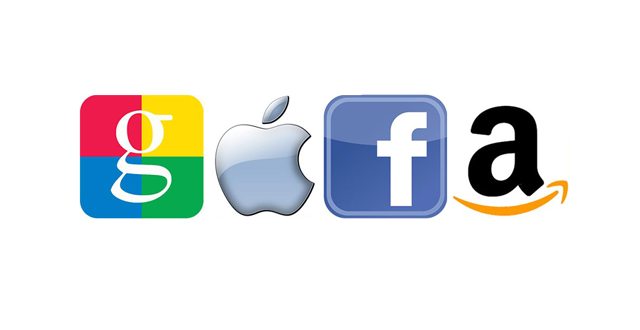
Bruno Colmant is right to assert that taxing Google, Apple, Facebook and Amazon, known as GAFA, would be futile. But it that a reason to reject the idea?
Last week on radio station LN24 , economist Bruno Colmant discussed the GAFA tax.*
He insisted that such a tax would be useless based on the following arguments:
1)The GAFA companies would recoup their losses by passing the cost on to either their suppliers, their consumers, or both, so that they would be the ones who would ultimately pay.
2) Under the terms of the European Monetary Union (which still seems a long way off), Belgium would have no means to apply pressure to GAFA.
3) In the end, GAFA’s official business figures would be irrelevant, so we shouldn’t even go into it.
He pragmatically proposes instead that we engage GAFA in dialogue about their views on employment and benefits with the objective of paying into public infrastructure. Therefore, there would be no GAFA tax and Belgium would offer it certain advantages, such as “greater flexibility in working hours.”
He is right on all counts. His approach would be more effective than a GAFA tax. However, his points are not without certain drawbacks. For one thing, it would necessitate the institution of a two-tier legal system with two separate categories.
Harmful Consequences
The first category, of which GAFA is a prime example, possesses great negotiating power owing, on the one hand, to their size, and on the other, to their considerable tax base mobility and ability to choose which jurisdiction suits them best. Their position of strength enables them to deal directly with the relevant government authorities, influence policy decisions, and obtain individualized treatment. Almost all of the parties in the second category, by contrast, have no choice but to conform to the legal jurisdiction they are stuck with, including its fiscal aspects.
The consequences of such a scenario are very harmful:
1) Shifting the financial pressure from the first category to the second.
2) Preferential treatment for the first category that would give it a competitive advantage over the second, resulting in its saturating markets to the detriment of consumers.
3) The first category could then weaken democracy by influencing politics in ways that counter the wishes of ordinary citizens.
A Fair and Equitable Legal System
So yes, a GAFA tax would be futile. But that is only true in a situation where just a small number of actors have the ability to genuinely profit by blackmailing political policymakers. Given that the entities concerned here are larger and more powerful than many governments, only international dialogue and cooperation can establish a fair and equitable legal system. Since such cooperation is at this point half dead, it is hoped that individual governments will attempt to launch efforts in this direction. Sadly, such initiatives may prove counterproductive, a point on which we agree with Mr. Colmant. Everyone would end up losing if this happens.
The 137 member states of the Organisation for Economic Co-operation and Development which met last Monday were not unaware of the proposed tax on the mathematical giants of GAFA. The idea began to unravel with the United States’ decision to withdraw from such discussions from last June until the November presidential election. Olivier D’Hossche’s editorial on Bruno Colmant’s broadcast was edited by La Libre ahead of this meeting.
*Editor’s note: A tax imposed on tech giants Google, Apple, Facebook, and Amazon.

Leave a Reply
You must be logged in to post a comment.